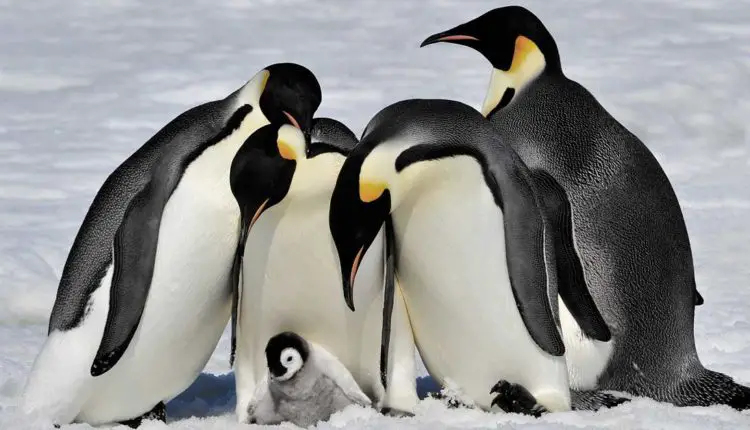The Art Intelligence,
25 April, 2019
“The second largest Emperor Penguin Colony in Antarctica has effectively disappeared”, UNILAD’s Julia Banim rings an alarming bell…
It all started back In 2016, when almost all emperor penguin chicks in the Halley Bay colony drowned after the sea ice they were being cared for on melted away.
Three years since the disaster, the colony has practically failed to produce any more youngs.
Even more concerning is the fact that the adult emperor penguins do not appear to be trying to repopulate their devastated colony.
Every year, between fifteen and twenty-four thousand emperor penguins used to head to Halley Bay to mate and raise their chicks. Since 2016, however, this traditional breeding ground appears to have been abandoned.
The tragedy was first reported by a team from the British Antarctic Survey (BAS), who were shocked by the sudden disappearance of this colony. It was so large that it accounted for five to nine per cent of the world’s emperor penguin population.
Using satellite pictures, Dr Peter Fretwell from the British Antarctic Survey (BAS) told BBC News:
“The sea-ice that’s formed since 2016 hasn’t been as strong. Storm events that occur in October and November will now blow it out early”.
We cannot help thinking that the recent instability and unpredictability of the sea ice has to do with the man-caused global warming.
Fretwell’s colleague, Dr Phil Trathan, added:
“What’s interesting for me is that we are talking here about the deep embayment of the Weddell Sea.
This is one of the climate change refugia for those cold-adapted species like emperor penguins.
And so if we see major disturbances in these refugia – where we haven’t previously seen changes in 60 years – that’s an important signal”.
However, The nearby Dawson-Lambton breeding ground, which had been home to only a couple thousand pairs, increased to 11,117 pairs in 2017 and 14,612 pairs in 2018, their study reveals further, as quoted by Bloomberg.
Scientists also warn that almost half of the breeding couples of emperor penguins on the Crozet and Prince Edward Islands on Antarctica will lose their breeding and fishing grounds by the end of the century.
‘If no actions aiming at halting or controlling global warming are taken soon, yes, the species may disappear in the near future,” Dr Celine Le Bohec, of Strasbourg University told Mail Online.
Yet, there may still be some light at the end of the tunnel. Dee Boersma, a penguin ecologist at the University of Washington in Seattle, sees hope for the species in the emperor penguin’s longevity.
“Since … some individuals [live] more than 30 years, these penguins should have other breeding opportunities,” he told Science Magazine.




No comments:
Post a Comment
Note: only a member of this blog may post a comment.